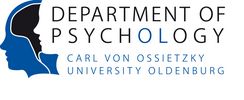M.Sc. Marc Rosenkranz
PhD Student
- Auditory perception
- Beyond-the-lab EEG recordings
- Work strains of surgeons
- Task force member of the Open Science Interest Group (OSIG)
- Signee of the OSIG Commitment to research transparency
Research Interest
Working in a noisy environment can be demanding especially when executing complex tasks. This is relevant for jobs with high responsibility such as surgery. The sound intensity in the surgery theatre is usually high due to monitoring devices and instruments. Additionally, other sound sources such as background talking between students further increase the noise floor. While it has been shown that a general reduction in noise, can reduce the risk of complications, the question remains how individual members of the surgery team can differentiate between relevant sounds that need a response and irrelevant sounds that can be ignored.
The goal of my PhD project is to investigate the auditory work strains of surgery staff. To identify individual differences in the processing of relevant and irrelevant sounds I will use (mobile) Electroencephalography (EEG), which allows the objective measurement of auditory processes. However, moving EEG from the laboratory to a complex work environment comes with several challenges: How does the technical setup work? Can we safely measure EEG in the operation theatre? What do we expect to observe in the EEG signal? Finding an approach to answer these questions will be part of my project. The project takes place in collaboration with the general and visceral surgery department of the PIUS hospital Oldenburg.
Education & Career
Since June 2021
PhD student at the Neuropsychology Lab under supervision of Dr. Martin Bleichner
2018 – 2020
M.Sc. Neurocognitive Psychology, University of Oldenburg, Germany
2014 – 2017
B.Sc. Psychology, University of Groningen, Netherlands
Publications
Rosenkranz, M., Cetin, T., Uslar, V.N., and Bleichner, M.G. (2023) Investigating the attentional focus to workplace-related soundscapes in a complex audio-visual-motor task using EEG. Front. Neuroergon. 3:1062227. doi: 10.3389/fnrgo.2022.1062227
Holtze B., Rosenkranz M., Jaeger M., Debener S. and Mirkovic B. (2022). Ear-EEG Measures of Auditory Attention to Continuous Speech. Front. Neurosci. 16:869426. doi: 10.3389/fnins.2022.869426
Rosenkranz M., Holtze B., Jaeger M. and Debener S. (2021). EEG-Based Intersubject Correlations Reflect Selective Attention in a Competing Speaker Scenario. Front. Neurosci. 15:685774. https://doi.org/10.3389/fnins.2021.685774

